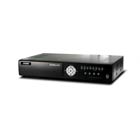
Gone are the days when you had to be home at a particular time to watch the latest episode of your favourite sitcom. There are just so many options available now- you could always stream the show online but more often than not, the picture quality is terrible. If you want to sit back with a bowl of popcorn and enjoy the sitcom in high definition format, you must invest in a Digital Video Recorder or a DVR. A DVR is designed to digitally record TV content onto an internal hard drive or a DVD.
If you are a big TV enthusiast, a DVR can be a godsend for you. Not only can you watch the serials you have missed out on, you can also pause live television, replay scenes and save yourself the trouble of watching long and irritating commercials simply by fast forwarding through them. These are just some of the perks of owning a DVR. Having said that, are there other features offered by different models? What are the basic functions that you must look for while buying a DVR?
1. Type of DVR
First things first, let's quickly run through the different types of DVR’s and find out how they differ from each other.
Personal Video Recorders or PVR’s usually function as add-ons to a computer or a laptop and store the recordings onto the hard drive of the computer they are attached to. They come in the form of TV tuners and are the most basic forms of DVRs. DVD recorders are a step up in the hierarchy as they come with an in-built DVD writing mechanism. So, the content is saved on to a DVD which needs to be swapped regularly.
Hard Drive Recorders have a lot more to offer than the above mentioned gadgets. They come with an internal hard drive with a capacity as high as 500GB which means that you can record a lot of content in one go without worrying about swapping DVD's. Such recorders also offer advanced features like Chase Play which allows you to instantly replay a particular scene and Time Shift using which you can pause live television.
2. Format Compatibility and Storage Capability
It is imperative that you check the DVD format used by any DVR for recording and playing TV content. The latest models are usually equipped to be compatible with all formats and are known as universal recorders. It is always a safer bet to go for a universal recorder.
Storage capability is again very important as it determines the amount of TV content that can be recorded by your DVR. With a PVR or a simple DVD recorder, storage capability is a bit of a limiting factor. With the latter, you can't exceed the storage space of one DVD which is usually less than 5 GB. But with a hard drive recorder, you can record as many hours of TV content as you want without any breaks in between.
3. Audio and Video Recording Modes
Depending on the price of the model, different DVR's offer different types and quality of audio and video recording modes. The standard mode for audio recording is Dolby Digital while for video recording, it is MPEG-2. Most DVR’s offer four types of recording modes while some advanced models offer as many as 32 recording modes. As the recording quality of these modes increases, the recording space required also increases simultaneously. So, consider your own priorities before you make a decision- How much TV do you want to record? What quality of picture and sound are you expecting and finally how much are you ready to pay for it?
4. Connectivity
Some DVR's come with an inbuilt mechanism which allows you to transfer the recording on to a USB drive. This means that you can watch the recorded content just about anywhere- on your laptop or iPod. This option provides you a lot of flexibility as you don’t have to be tied to your television set to watch the recorded content.
Besides these factors, there are several other small little decisions that can make a huge difference. A lot depends on the kind of cable connection you have. If you already have an HD connection or if you are planning to upgrade to one sometime soon, then it makes sense to buy an HD DVR. Similarly, it is important to decide on a few things beforehand like how much recording would you do on a regular basis? That is the crucial question to ask really and once you have a rough estimate you can start looking for the appropriate DVR.
The other important question is regarding the number of advanced features you are looking for. A lower end PVR or a DVD recorder does not offer any fancy features but a hard drive recorder allows to edit videos in addition to the other features already mentioned.
There is no dearth of models or brands in the DVR sector-Panasonic, Sony, LG being the most trusted names. So, chalk out a framework in your mind, buy a DVR and watch your favourite TV shows whenever you want.